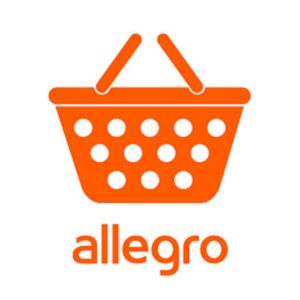Introduction to Allegro
Allegro, often referred to as the “eBay of Poland,” stands as one of the most prominent e-commerce platforms in Central and Eastern Europe. Established in 1999, Allegro has grown exponentially, adapting to market needs and embracing technological advancements to stay ahead in the competitive online marketplace. This blog delves into the various facets of Allegro, highlighting its journey, features, and impact on the e-commerce landscape.
The Genesis and Evolution of Allegro
Allegro was founded in Poznań, Poland, and quickly became a go-to platform for Polish consumers looking for a wide range of products. Initially, Allegro operated as an auction site similar to eBay, but over time, it transitioned to a fixed-price model. This shift was pivotal in attracting a broader audience, as it simplified the buying process and ensured more predictable pricing.
In its early years, Allegro’s success was driven by its user-friendly interface and extensive product categories. The platform offered everything from electronics and fashion to home goods and automotive parts. As the internet became more accessible in Poland, Allegro’s user base expanded, solidifying its position as a market leader.
Key Features and Services
Allegro’s success can be attributed to its robust set of features and services designed to enhance the user experience for both buyers and sellers. Some of the key features include:
1. Diverse Product Categories
Allegro hosts millions of listings across a vast array of categories, catering to nearly every consumer need. This diversity ensures that users can find virtually anything they are looking for, from the latest gadgets to vintage collectibles.
2. Allegro Smart!
Launched in 2018, Allegro Smart! is a subscription-based service that offers numerous benefits, including free delivery on eligible items, returns, and access to exclusive deals. This service has been instrumental in increasing customer loyalty and repeat purchases.
3. Payment and Security
Allegro offers a secure payment system known as Allegro Pay, which provides buyers with various payment options, including installments. The platform also employs advanced security measures to protect users’ data and transactions, ensuring a safe shopping environment.
4. Seller Support and Tools
Allegro provides sellers with a comprehensive suite of tools to manage their businesses efficiently. From inventory management to analytics and advertising options, sellers have everything they need to optimize their operations and reach a wider audience.
The Role of Technology in Allegro’s Growth
Allegro has consistently leveraged technology to stay competitive and improve its services. The platform’s search algorithm, for instance, is designed to deliver highly relevant results, enhancing the shopping experience. Machine learning and artificial intelligence are used to personalize recommendations, ensuring that users are presented with products that match their interests and browsing history.
Moreover, Allegro has embraced mobile commerce, recognizing the growing trend of shopping on smartphones and tablets. The Allegro mobile app offers a seamless and intuitive experience, allowing users to browse, buy, and manage their accounts on the go. This focus on mobile optimization has been crucial in maintaining user engagement and satisfaction.
Allegro’s Impact on the Polish Economy
Allegro’s influence extends beyond the digital realm, significantly impacting the Polish economy. The platform has provided a vital channel for small and medium-sized enterprises (SMEs) to reach a national audience, fostering entrepreneurship and business growth. Many Polish businesses have thrived by leveraging Allegro’s extensive reach and user base.
Additionally, Allegro has created numerous job opportunities, both directly and indirectly. The company employs thousands of people in various roles, from IT and customer service to logistics and marketing. Furthermore, the success of businesses on Allegro has led to job creation in related sectors, such as manufacturing, warehousing, and delivery services.
The Future of Allegro
As Allegro continues to grow, it faces the challenge of staying ahead in a rapidly evolving e-commerce landscape. The platform is likely to focus on further enhancing its technology, expanding its product offerings, and exploring new markets. Sustainability and ethical business practices are also expected to play a more significant role in Allegro’s future strategies, as consumers become increasingly conscious of environmental and social issues.
Innovation will be key to Allegro’s sustained success. The company may explore opportunities in emerging technologies such as augmented reality (AR) and virtual reality (VR) to enhance the shopping experience. Additionally, expanding its footprint beyond Poland and into other European markets could provide new growth avenues.
Conclusion
Allegro’s journey from a local auction site to a leading e-commerce platform in Central and Eastern Europe is a testament to its adaptability and commitment to customer satisfaction. By continuously evolving and embracing new technologies, Allegro has managed to stay relevant and competitive in a dynamic market. As it looks to the future, Allegro’s focus on innovation and sustainability will likely ensure its continued success and impact on the e-commerce industry.




